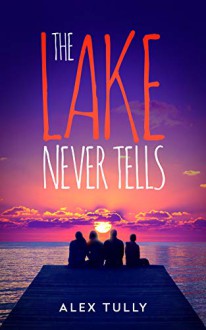
As the fifteenth Chief of Staff of the United States Army, George Catlett Marshall oversaw the transformation of the United States Army from a modest constabulary into an organization capable of waging war on a truly global scale. Though such a metamorphosis was due to the efforts of thousands of people working over the course of many years, as Forrest Pogue demonstrates in the second volume of his biography of the general and statesman Marshall’s contribution was key to the development of the Army into a force that would play a vital role in defeating the Axis powers and establishing the United states as a global superpower.
This was no small achievement, nor was it an easy one. As Pogue notes, Marshall would regard his two years of service as Chief of Staff as the most difficult of his tenure, far more so than the four years he spent in the post during the war itself. Much of this had to do with the dimensions of the task before him. When Marshall took up the post in September 1939, the Army was both under-funded and under-strength, limited by postwar disillusionment and financial constraints. Nor did the outbreak of war in Europe suddenly change everyone’s thinking. As late as April 1940, members of Congress questioned the need to expand the ground forces, believing that the low-intensity “phony war” that developed after the fall of Poland was easily avoidable. Only after their invasion of Denmark and Norway made German intentions clear did Congressional opposition to spending for a larger force finally evaporate.
Yet Marshall gained his money at the expense of time. In short order he was expected to develop a fighting force capable of deterring or defeating any German threat. Nor did the now-expanded budget solve the Army’s problems, as Marshall had to cope with the competing need to support the British in their ongoing war against Germany for weapons production. Even more problematic was the widespread reluctance of many Americans to serve in the rapidly-expanding Army for one moment longer than they were required to by the draft, a sentiment to which many powerful politicians were sensitive. So how did Marshall surmount these challenges?
Pogue makes it clear that foremost among Marshall’s attributes was a Herculean work ethic, as he dedicated nearly every day to the duties of his office. To the task he also brought considerable diplomatic skill and a sensitivity to the limits of what was possible, enabling him to navigate skillfully the formidable politics that were part of his job. Finally, there was his eye for talent, as he had an extraordinary ability to identify men of ability and a determination to place them in the posts where they could make the best use of their skills. Often this meant promoting them over older men of longer service, many of whom Marshall knew personally. That Marshall was willing to turn friends into enemies in order to prepare the Army for what lay ahead is perhaps the best evidence of his determination to succeed in his mission.
These efforts, though, were outpaced by events. Pogue spends a considerable amount of space detailing Marshall’s role in the events leading up to the Japanese attack on Pearl Harbor, with the goal of rebutting the claims that he was part of a conspiracy to bring the United States into the war. Nevertheless, Pogue acknowledges the limits of Marshall’s conceptualization of the Japanese threat, noting that he overestimated the Army’s Hawai’ian defenses and underestimated the ability of the Japanese to attack him. The months that followed were especially tragic, as Marshall watched with despair as the Army units stationed in the Philippines were defeated by the Japanese. Yet this did not deflect him from his commitment to the “Germany first” focus adopted before the war, as he worked strenuously to launch a second front in France as early as 1942. Though Marshall was frustrated in this by the British (whom, as Pogue notes, would have borne the brunt of such an early effort), by the end of America’s first year of the war he could look with hope to the victories he knew would soon come.
Benefiting from interviews with Marshall and his contemporaries as well as considerable archival research, Pogue’s book serves as an effective monument to his subject and his achievements as Chief of Staff. Though focused on detail, it provides more analysis of its subject than Pogue’s previous volume, Education of a General, which helps to explain Marshall’s motivations and the thinking underlying them. While further analysis would have made for an even better book, given Pogue’s proximity to many of the key figures he describes he may have felt a little too constrained to offer the sort of judgments the facts he describes seem to demand, Nonetheless, his book is a valuable resource on both Marshall and his achievements, one that will likely remain required reading on the general for many years to come.

 Log in with Facebook
Log in with Facebook 









